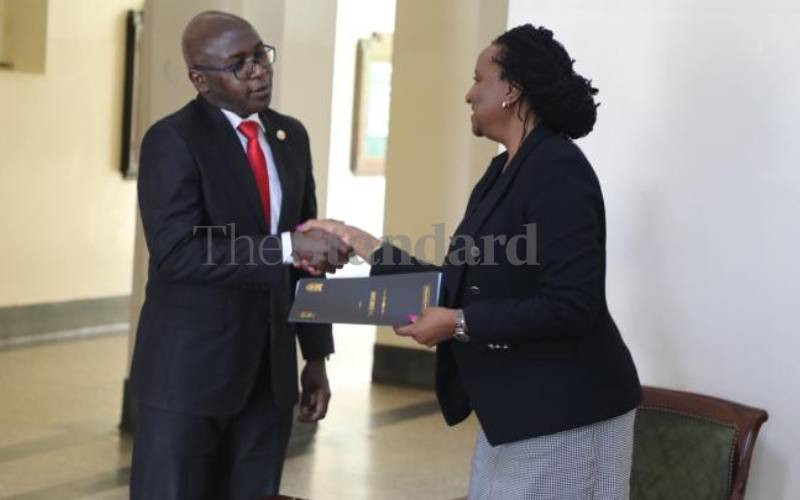×
The Standard e-Paper
The Standard

Harvard University-trained Kenya Revenue Authority Commissioner-General Humphrey Wattanga faces a huge task of overhauling the agency to achieve President William Ruto government's ever-rising revenue targets.
Wattanga was sworn into office Thursday, setting up himself for the coveted but unenviable job of cleaning up and digitising the agency to enable it to mobilise more taxes for the government despite a slowing economy.